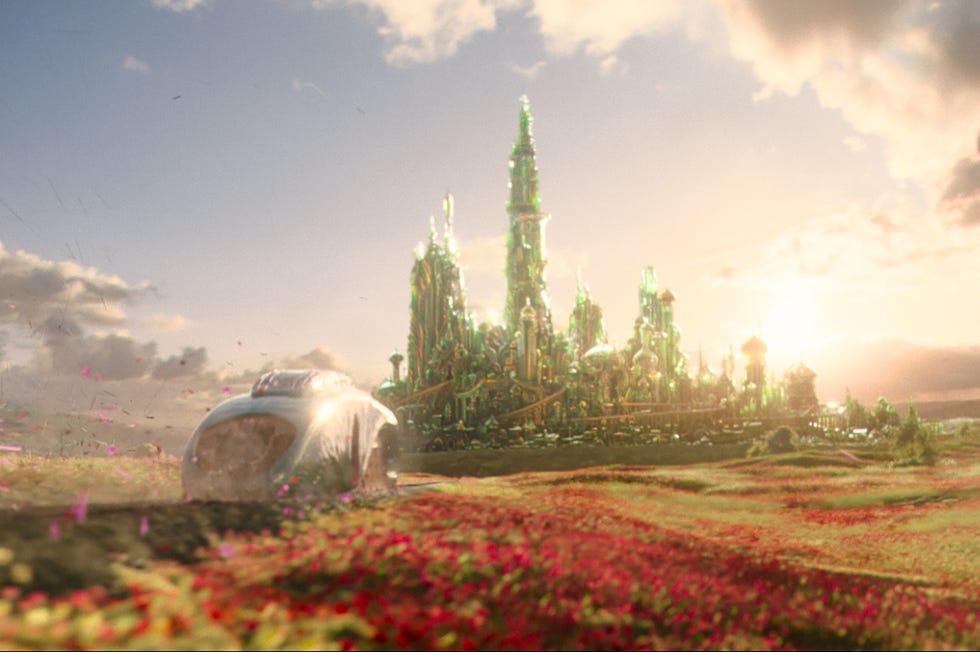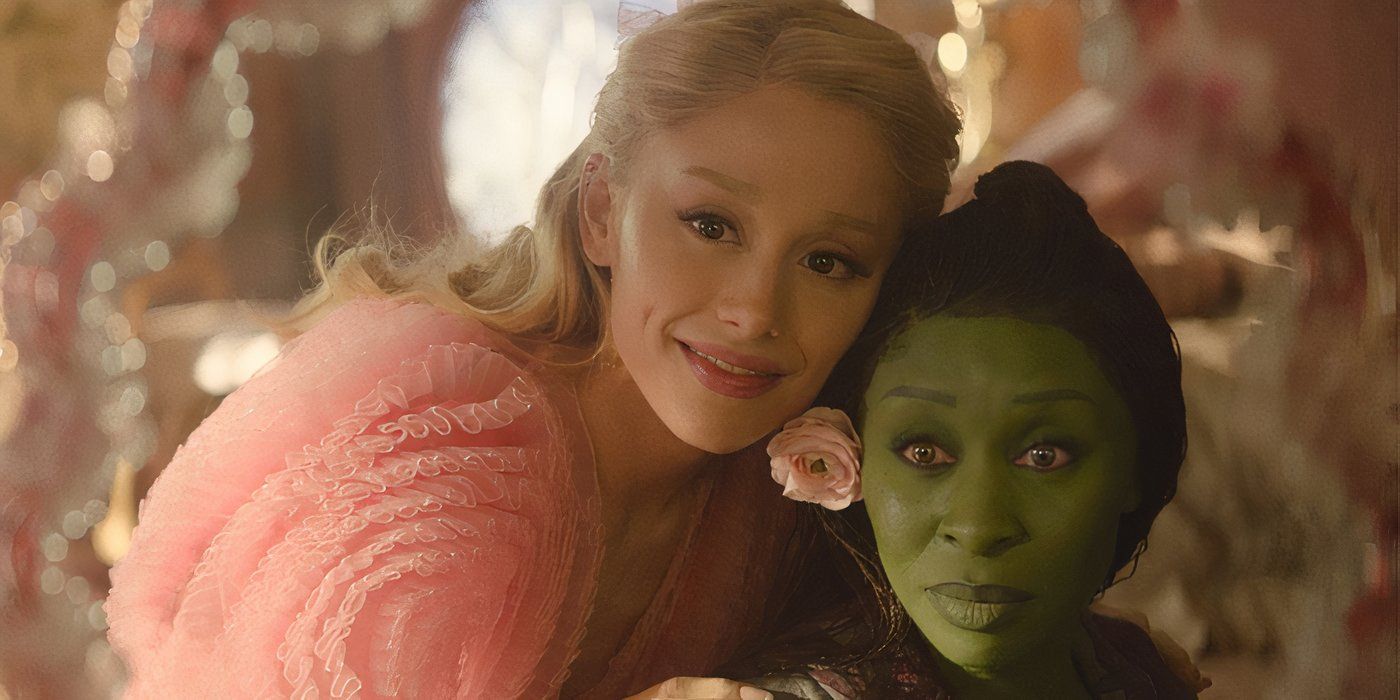Right off the bat, I have to admit: musicals and I don’t usually get along. If I can count on one hand the musicals I genuinely enjoy, that’s being generous. So when I sat down to watch
Wicked, I was already crafting my critique in my head. But somewhere along the way, something happened. The movie started to work for me—until it didn’t. Let me explain.
 |
| Image via IMDb |
A Vibrant and Immersive Oz
First off, the set and costume design are top-tier. The world of Oz has never felt more alive, immersive, or well-thought-out. I’m a fan of
The Wizard of Oz and have always appreciated the intricate world-building within it. Much like
The Lord of the Rings, every bizarre element of Oz feels like it has a purpose and a place. It’s whimsical yet grounded, and
Wicked captures that beautifully.
 |
| Image by ELLE Decor |
Strong Character Arcs
The characters also deserve praise. Each one felt three-dimensional, and the movie took care to give even minor players their own arcs. It’s rare for a film to strike such a balance, but Wicked did it well. And those little touches of story-building were a highlight for me: explaining the witch’s broom, Glinda’s rise to "Good Witch" status (though that’s debatable), the origins of the Yellow Brick Road, and the Emerald City’s grandeur. These moments gave depth to the world in ways I didn’t expect.
 |
| Image by Los Angeles Times |
An Intriguing Start, but Then...
Through most of the film, I was invested. I found myself genuinely curious about how it would all tie into the Oz canon. However, as the story unfolded—and as I remembered this is only Part 1—I realized not everything would be resolved here. That’s fair. What isn’t fair is how the movie completely derails in its closing act.
 |
| Image by Collider |
The Betrayal of Elphaba
Let’s talk about Elphaba, the “Wicked” Witch. The film does an excellent job showcasing why she might turn evil: childhood rejection by her father, ridicule from her peers, and the weight of guilt over her mother’s death. These elements made her sympathetic and tragic. But then the movie pulls a bait-and-switch. Suddenly, Elphaba isn’t wicked at all—she’s the hero. Oz is the villain, the Emerald City is a tyrannical empire, and Elphaba is the leader of the resistance.
 |
| Image by The Direct |
Canon, Consistency, and Frustration
Making the witch a "Save the whales" activist undermines the emotional investment I had in her character. If the narrative wants to reframe her as misunderstood, fine. But it should still stay true to the canon. Instead, it tries to rewrite history while simultaneously cherry-picking from the original lore. For example, Oz is painted as a straight-up evil dictator, despite canon portraying him as a flawed but not malicious conman. The hypocrisy of adhering to some aspects of the original story while discarding others drove me up the wall.
And let’s not forget the central conceit: Elphaba isn’t wicked; she’s only labeled as such by the powers that be. That might work in another story, but here, it feels forced and hollow. Why call her "Wicked" at all if you’re going to make her a misunderstood savior?
 |
| Image by Kuow |
Final Thoughts
I can only give this a
5 out of 10.
By the time the credits rolled, my goodwill for the movie had evaporated. While I enjoyed much of the craftsmanship and storytelling up until the last act, those final 15 minutes left a sour taste. I couldn’t help but feel insulted on behalf of the original creators and the fans who cherish the established lore.
I loved much of
Wicked—up until I didn’t. The world-building and performances are fantastic, but the final act’s betrayal of the original lore and the shallow resolution make it hard to recommend. For fans of
The Wizard of Oz, it might be more frustrating than magical.
Pros
- Stunning world-building: The set and costume design bring Oz to life in breathtaking detail, making it feel vibrant and immersive.
- Great character arcs: Even the supporting characters have depth, giving the story more weight and texture.
- Compelling story-building: Small but meaningful touches, like the witch’s broom and the Yellow Brick Road, flesh out the world beautifully.
- Excellent performances: The cast, particularly Elphaba’s portrayal, does a great job making the characters feel real and relatable.
Cons
- Canon-breaking plot: Rewriting Oz’s history to make Elphaba the hero undermines the original story and feels inconsistent.
- Disjointed messaging: The film tries to balance staying true to some parts of the lore while completely disregarding others.
- Weak final act: The last 15 minutes derail the narrative, feeling forced and tonally out of place.
- Shallow thematic payoff: While it explores interesting ideas, the film ultimately doesn’t commit to any of them in a satisfying way.






Comments
Post a Comment